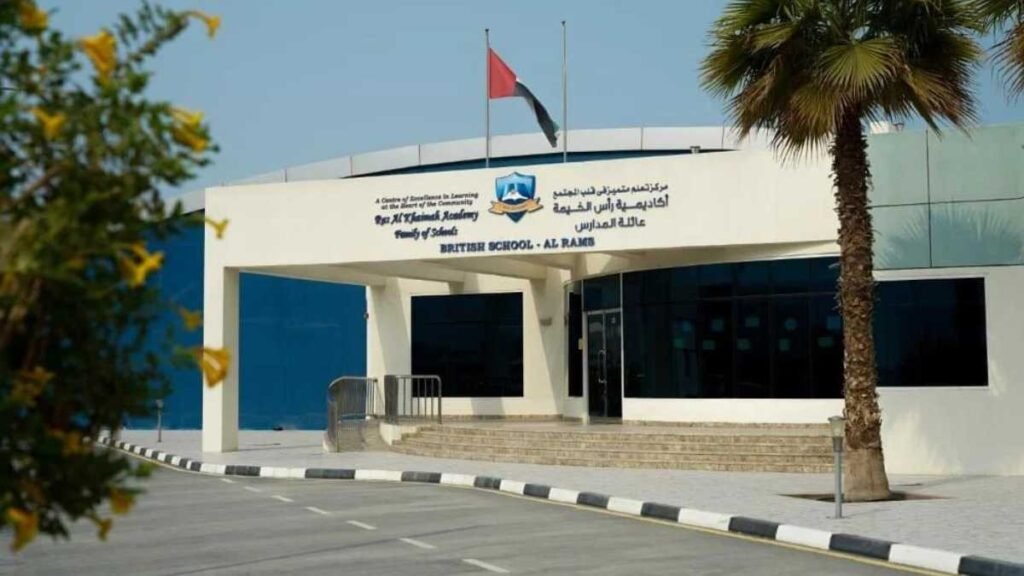In an exciting move towards a greener future, schools across Ras Al Khaimah (RAK) have started rolling out innovative sustainability programs. These initiatives aim to educate the next generation about the importance of environmental preservation while actively encouraging students to contribute to a more sustainable world.
As the UAE continues to make strides towards achieving its sustainability goals, RAK is stepping up by integrating eco-friendly practices into the heart of its educational system. This bold new approach aims to not only raise awareness about climate change but also provide students with hands-on experiences that foster environmental responsibility.
A Shift Towards Green Education
The introduction of sustainability programs in RAK schools is a significant shift in how educational institutions approach environmental issues. It’s no longer enough to just talk about climate change; now, schools are turning their classrooms into hubs of environmental action. Students are encouraged to engage in activities like tree planting, waste management, and energy-saving challenges.

By integrating these topics into their daily routines, RAK students learn how they can make a positive impact. The focus is on practical knowledge, teaching children how small actions at home and in their community can contribute to a larger global effort in tackling environmental problems.
Hands-On Sustainability Learning

One of the standout features of these sustainability programs is the emphasis on practical learning. For example, students are now part of eco-clubs that take part in local environmental projects, from cleaning up beaches to building community gardens. These clubs give students a platform to apply what they’ve learned in the classroom to real-world challenges.

Schools have also partnered with local environmental organizations to give students a chance to see sustainability practices in action. This hands-on approach helps students not only understand the theoretical aspects of sustainability but also see how these ideas play out in real-life situations.
Encouraging Eco-Friendly Choices
As part of their sustainability programs, schools in RAK are introducing initiatives that encourage students to make eco-friendly choices. One of the most popular initiatives is the “Waste-Free Lunch Day,” where students bring lunch in reusable containers, avoiding single-use plastic. This simple step encourages children to consider the environmental impact of their everyday actions.
Additionally, schools have implemented energy-saving measures such as reducing electricity consumption and promoting the use of natural lighting. Students are involved in monitoring energy usage, learning how even small changes in behavior can significantly reduce the school’s carbon footprint.
Collaboration with Local Communities
RAK schools understand that environmental sustainability is not just an individual effort—it requires a collective approach. That’s why many schools are collaborating with local communities to promote green initiatives. Whether it’s organizing community clean-up days or hosting sustainability fairs, these schools are working hand-in-hand with local organizations and businesses to amplify their efforts.
This collaboration extends to parents as well. Schools have launched programs that encourage families to adopt more sustainable practices at home. From reducing water usage to recycling more effectively, parents are encouraged to take part in their children’s learning about sustainability.
The Long-Term Impact of Sustainability Education

The long-term impact of these sustainability programs is expected to be far-reaching. By instilling eco-conscious values in students from a young age, RAK schools are shaping the leaders of tomorrow who will continue to champion sustainability in their future careers and personal lives. These initiatives are designed to ensure that students not only understand the importance of protecting the environment but also have the skills to create innovative solutions to the world’s most pressing environmental issues.
These programs also align with the UAE’s Vision 2021, which aims to create a sustainable environment and infrastructure, while fostering a culture of sustainability in all aspects of life.
Positive Reception from Teachers and Students
Teachers have expressed their excitement about the new programs, noting that students are more engaged and motivated to learn when it comes to topics like sustainability. “It’s incredible to see how much the students are excited to be involved in sustainability projects,” said Sarah Al-Mansoori, a teacher at one of the participating schools. “They are not only learning but also taking action, which is the best way to create lasting change.”
Students themselves are equally enthusiastic. Many have shared how they feel empowered by the chance to contribute to environmental causes. “It feels good to know that what I’m doing is helping the planet,” said Ahmed, a student at one of the schools. “It makes me proud to be part of a movement that’s making a real difference.”
Looking Ahead: Expanding Sustainability Efforts
As the success of these programs continues to grow, RAK schools plan to expand their sustainability efforts even further. Future initiatives will include integrating more advanced environmental technologies into the curriculum, creating even more opportunities for students to get involved in community-based projects, and introducing sustainability competitions between schools.
By focusing on sustainable practices now, RAK schools are setting the foundation for a generation of eco-conscious leaders who will be well-equipped to tackle the challenges of tomorrow’s world. As these students move into adulthood, they will carry with them the valuable lessons learned in the classroom about the importance of protecting our planet.
Conclusion
The new sustainability programs in RAK schools are not just about teaching students facts and figures; they are about shaping a generation that understands the value of our environment and actively works towards its preservation. By fostering a culture of sustainability through hands-on learning, community involvement, and eco-friendly practices, these schools are playing a vital role in the UAE’s broader sustainability efforts.
As these programs continue to evolve, RAK schools will no doubt remain at the forefront of environmental education, inspiring not only their students but also the community at large to make sustainable choices that benefit the planet for generations to come.
Also read: Ras Al Khaimah to Host International Investment Conference














